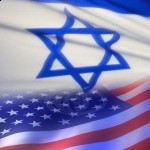
It’s become a daily event. On most evening chat shows, whether it be
10 masa’an (10 in the Evening),
al hayat al youm (Life Daily),
90 Minutes, or
48 Hours, protests are reported on regular, yes daily basis. It’s totally "en vogue" these days.
Who can argue that democracy does not exist in Egypt? Of course it does, protests go on everywhere and anywhere. Therefore the Egyptian public have a right to speak out their opinions. A sign of a healthy society?
MENA House: An Interview with Head of Egypt’s Muslim Brotherhood
However, on 18 April, the discussion on public protests hit (no intent on the pun) the People’s Assembly (Maglis al shaab). An internal dispute between two leading MPs broke out. Fists were thrown, unpleasantries were exchanged.
As Mona El Shazly commented on her evening show
10 Masa’an, this has become commonplace, something to which viewers and commentators have become accustomed. The real cause for concern was the nature of the topic that caused inflammatory reactions: the National Democratic Party called on the Interior Ministry to shoot protestors, referring specifically to demonstrations on 6 April.
Activists who took part in those protests included the 6
th of April Youth Movement, the leftist Tagammu Party, the liberal Ghad Party, and the National Association for Change (NAC), and Mohamed El Baradei's pro-reform coalition, as well as members of other groups.
Protesters had planned to walk from downtown Cairo's Tahrir Square to the nearby People’s Assembly in an attempt to emulate the 6 April 2008 general strike and to protest Egypt's longstanding Emergency Law. However, security forces brought the demonstrations to a halt.
Days before, the security forces had warned the 6
th of April Movement that the demonstration was a security threat: protests in Tahrir Square in the centre of Cairo effectively brings all of the city to a standstill. According to
media reports in Egypt,
ninety-three activists were arrested and
ten police officers were injured.
Back to the "debate" in the People’s Assembly:
A meeting was held to discuss the human rights violations committed on 6 April. Adding salt to the wound, a National Democratic Party (NDP) member Nassh’at al Qassas said, "I don’t know why the Interior Ministry is so lenient with protestors....Rather than using water hoses to disperse the crowd, the police ought to use live rounds to shoot them."
El-Qassas' NDP colleague, Ahmed Abu Aqrab, alleged that members of the Muslim Brotherhood (MB) parliamentary bloc had falsified reports about police violations to gain media coverage. The claim led to a fistfight between Abu Aqrab and MB parliamentarian Mohamed el-Biltagy.
Vulgar exchanges between the two parties continued, with Abu Aqrab claiming that the MB receive illegal funding from abroad, to which MB member el Biltagy responded, "What do you mean? I am better than you and the likes of you!"
Another Brotherhood MP, Hamdi Hassan, showed el-Qassas a shredded t-shirt that allegedly belonged to a protester who had participated in the 6 April demonstrations. Heated discussions continued in the People’s Assembly and later became the main topic of the evening news discussion programmes.
Assistant Interior Minister Hamed Rashid said the law allowed police to employ force against anyone attempting to disrupt public order or attack security personnel. He added that those who attacked the security forces, who were there to "maintain calm", cannot be Egyptian patriots and therefore deserve what was coming to them.
The US State Department responded by renewing calls for democratic reform. Spokesperson P. J. Crowley said, "All individuals must exercise their basic freedoms freely." He continued, "All Egyptians must play a genuine role in an open and transparent political process," adding that more people should be involved in the political system.
In a
statement last week the US Government eliminated funding for civil society in Egypt:
Under the Obama Administration, the US government acquiesced to demands from Egypt and Bolivia to eliminate all funding for independent civil society and continues the policy of restricting U.S. assistance to groups to those that receive the approval of the Egyptian government.
Whilst the US government uses democratic reform as leverage for funding to Egypt, this is not the main cause for concern. Civil groups continue to receive funding from other sources such as the Middle East Partnership Initiative and the State Department’s Bureau of Democracy, Human Rights, and Labor.
The real worry is over three points: the enraged reaction in the People’s Assembly, hardly the action of role models in society; NDP members encouraging forces to use live rounds on their fellow Egyptian citizens in the name of "maintaining security’"; and the prospects of what might occur in the next influential protest.
 Friday, April 23, 2010 at 20:06
Friday, April 23, 2010 at 20:06  On Thursday, Israeli Prime Minister Benjamin Netanyahu said that there would be no construction freeze in Jerusalem; however, he offered confidence-building gestures, such as allowing the opening of Palestinian Authority institutions in the eastern part of the city, transferring additional West Bank territory to Palestinian security control, and discussing all the core issues of the conflict during proximity talks with the Palestinian Authority.
On Thursday, Israeli Prime Minister Benjamin Netanyahu said that there would be no construction freeze in Jerusalem; however, he offered confidence-building gestures, such as allowing the opening of Palestinian Authority institutions in the eastern part of the city, transferring additional West Bank territory to Palestinian security control, and discussing all the core issues of the conflict during proximity talks with the Palestinian Authority.


